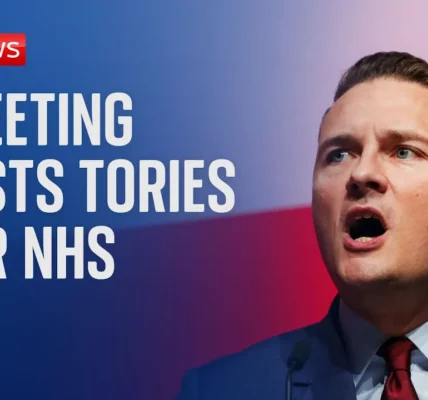Press Preview: UK Political Developments and Economic Policies

In this article, we delve into the latest headlines shaping the UK political landscape, from Diane Abbott’s reinstatement to pressing economic policies proposed by key figures in the Labor and Conservative parties. Join us as we explore the implications of these developments ahead of the upcoming election.
Introduction
The political climate in the UK is heating up as the election campaign takes center stage. Key stories are emerging that highlight the tensions within the Labor Party, the economic strategies proposed by the Conservatives, and the broader implications for the electorate. The reinstatement of Diane Abbott, the controversies surrounding various party figures, and the ongoing debates about pension reforms are just a few of the critical issues that are shaping public discourse. This article provides an in-depth analysis of these topics, offering insights into what voters can expect as the election approaches.
Diane Abbott’s Political Journey and Recent Developments
Diane Abbott, a prominent figure in the Labor Party, has had a tumultuous journey that has recently taken a new turn. After being suspended for comments regarding Jewish people, Abbott has had the party whip restored, allowing her to continue her role within the party, albeit under scrutiny. This section explores her significance in political history and the implications of her reinstatement.
Historical Significance
As the first black woman elected to Parliament, Diane Abbott’s political career spans over 37 years, marking her as an influential figure in UK politics. Her long-standing commitment to the Labor Party and her advocacy on social issues have left an indelible mark on the party’s identity.
Current Controversies and Reactions
Despite her reinstatement, Abbott faces challenges, including a bar from standing as a candidate in the upcoming election for her safe seat in Hackney North and Stoke Newington. This decision reflects Labor leader Keir Starmer’s desire to distance the party from past associations with anti-Semitism and hard-left elements. It raises questions about the party’s direction and the treatment of its long-term members.
Economic Policies and the Election Campaign
The election campaign is not just about personalities; it also revolves around crucial economic policies that will affect millions. This section discusses the contrasting approaches taken by key political figures regarding economic stability and pension reforms.
Rishi Sunak’s Economic Strategy
Rishi Sunak, the Prime Minister, has unveiled plans for a “triple lock plus” system for pensions, which guarantees that pension payouts will increase with inflation or earnings, whichever is higher. While this move is aimed at securing the elderly vote, critics argue that it may not address the underlying issues of pension sustainability.
Key Features of the Triple Lock Plus
- Increases pension payouts based on inflation or average earnings.
- Aims to provide an additional £428 to pensioners in the coming year.
- Critics label it as mere window dressing without addressing fundamental pension issues.
Labor’s Response and Economic Vision
On the other side of the aisle, Labor’s Shadow Chancellor Rachel Reeves has been cautious in her economic messaging, emphasizing fiscal responsibility while also engaging with business leaders. Her refusal to rule out further tax rises reflects a pragmatic approach aimed at stabilizing the economy.
Key Points from Rachel Reeves’ Economic Plan
- Focus on infrastructure investment.
- Engagement with business leaders for economic stability.
- Limited tax changes, with an emphasis on clamping down on tax evasion.
Implications for Voters and Future Directions
The unfolding political landscape poses numerous questions for the electorate. Voters are left to navigate the complexities of party strategies and the implications of proposed policies. Understanding these dynamics is essential for making informed decisions in the upcoming election.
Voter Sentiment and Concerns
With rising concerns over the cost of living, health services, and education, voters are increasingly scrutinizing the promises made by political parties. The effectiveness of these promises will heavily influence public opinion and voter turnout.
Future of the Labor Party
As the Labor Party continues to reshape its identity under Starmer’s leadership, the purging of hard-left elements raises questions about its future direction. The challenges of balancing party unity with the need for change are crucial for its electoral success.
Conclusion
The current political landscape in the UK is marked by significant developments, particularly regarding the Labor Party and economic policies. As Diane Abbott’s situation unfolds and the election campaign progresses, it is evident that these factors will play a pivotal role in shaping voter perceptions and decisions. Engaging with these issues will be essential for voters looking to understand the implications of each party’s platform. Stay informed and participate actively in the democratic process as the election approaches.
For more insights on political developments, be sure to check out our related articles on the Labor Party’s transformation and current economic policies in the UK.
“`




